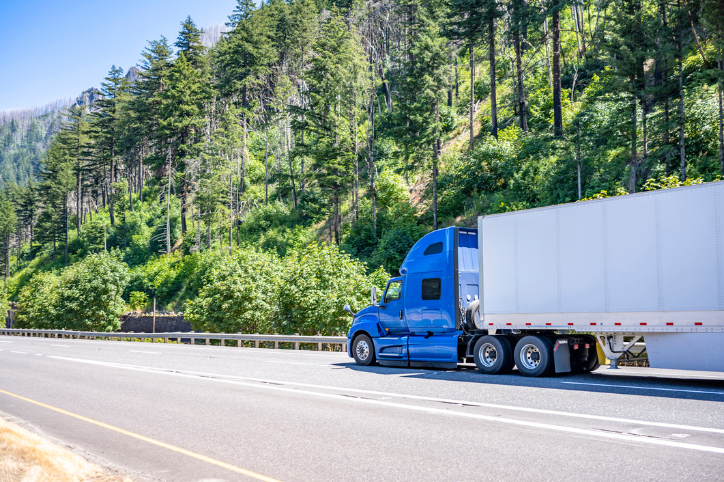
Trailer Interchange Insurance: What Is It, How It Works & Who Needs It
Trailer interchange insurance is a type of physical damage coverage. Simply put, trailer interchange insurance provides a policyholder with liability coverage for any damage they may cause to a trailer that belongs to others. However, there can be confusion about how this type of insurance works, whether or not it’s necessary, and when coverage may apply.
Here, we’ll answer the most common questions regarding trailer interchange insurance so you can help your clients better understand this important coverage.
How does trailer interchange insurance work?
Trailer interchange insurance protects a driver against any damage they cause to another party’s trailer during the course of business. Common covered claim events typically include (but aren’t limited to) collisions, falling objects, fire, theft, and damage caused by weather-related occurrences.
For example, let’s say that one of your trucking company clients is hauling a load using an exchanged trailer. While refueling, the driver backs into a post and causes substantial damage to the trailer. With this type of insurance, the transportation company’s driver who is liable for the damage would have coverage under a trailer interchange policy to help cover repairs. Likewise, if the trailer was stolen while the driver was refueling, coverage for theft would apply in a claim situation.
Is trailer interchange insurance required?
In general, trailer interchange insurance isn’t required. However, if your clients regularly haul loads using non-owned trailers, it’s important that they have this coverage. In fact, most interchange agreements will require that your transportation clients obtain trailer interchange insurance when pulling trailers that belong to others, to help cover any physical damage to the trailer as well as any other equipment in their possession.
As is the case with auto insurance, the amount of coverage a client may need depends on several factors, including the average value of the trailers typically used and what they are used for. Trailer interchange insurance is also subject to policy deductibles and maximum coverage limits.
Can other policies cover the damage?
You may be wondering if a client’s comprehensive or property damage insurance can help cover damage or other types of losses involving a non-owned trailer. Because an exchanged trailer isn’t owned by the driver’s company, any damages that would typically be covered by a comprehensive or property damage insurance policy would not apply in such a situation and would require separate policies.
Are trailer interchange and non-owned trailer coverage the same thing?
Trailer interchange coverage provides specific protection for trucking businesses against unforeseen damage to a trailer they don’t own. Coverage is provided the entire time a trailer is in the possession of the driver – whether it’s attached to the truck or not. Non-owned trailer coverage, however, applies only when damage occurs to a non-owned trailer while it’s hitched to the driver’s truck.
Does having both trailer interchange and non-owned trailer coverage best protect my trucking clients?
Whether a client may be better protected by having both types of policies depends on the company’s client base. Companies that work with a lot of businesses that require an interchange agreement (a contract that lists the terms and responsibilities of both the trailer’s owner and the trucking company in possession of the trailer) may want to consider both types of coverage. This can make it easier to conduct business by having the right insurance in place when they need it.
Can a cargo insurance policy provide any protection for non-owned trailers?
Cargo insurance provides coverage for the cargo that is being transported by the company, not for the trailer carrying the cargo. In most cases, a motor carrier should have both trailer interchange coverage and cargo coverage.
To recap – your transportation clients may not realize just how much this type of insurance can help them mitigate losses, so it’s important for you to provide them with information so they can explore all available options. Not only will trailer interchange insurance help to get a trailer back on the road sooner but can help maintain good working relationships with vital transportation business partners!
To learn about our transportation insurance products and how we can best serve you, our retail broker clients, please email marketing@acrossamericainsurance.com or call 760-302-5300.
Need to get appointed with Across America? You’re so close! Get set up to do business with us.

